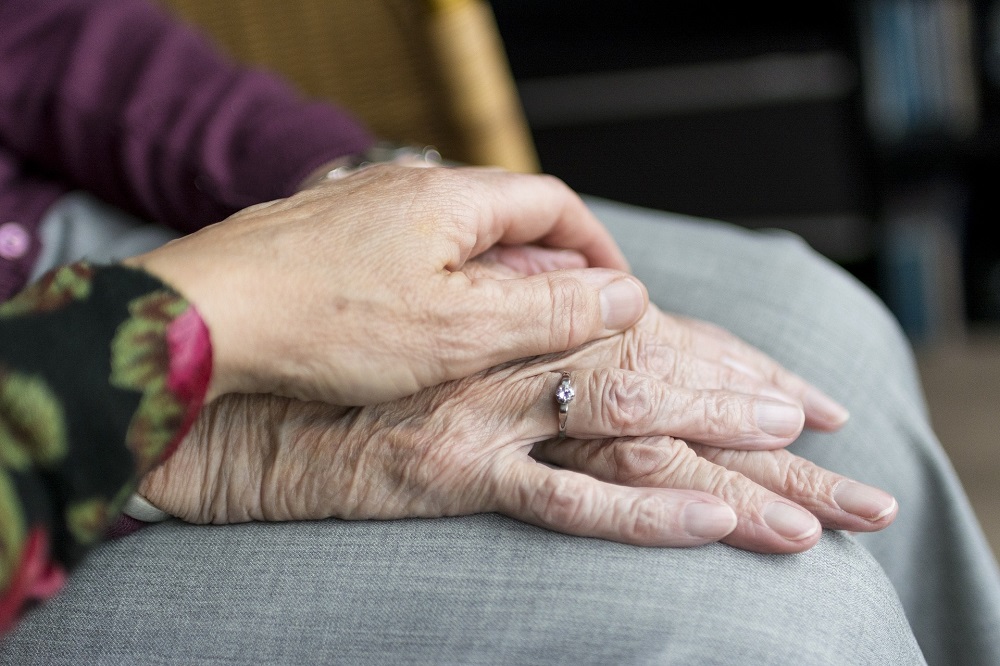Fear health board could be overwhelmed by care home closures due to Covid impact on staff

Richard Youle, local democracy reporter
Residents at three care homes in Swansea and Neath Port Talbot were close to moving into hospital en masse because there weren’t enough staff to look after them.
Such a scenario could potentially overwhelm the overstretched health board, according to Swansea Council’s director of social services, Dave Howes.
Mr Howes gave a bleak update on the pressures facing social care and health in the two counties to a Swansea Council scrutiny committee.
Referring to the possibility of care home closures, he said: “Probably out of anything, that would be our biggest risk of critical failure.”
Mr Howes said 11 care homes in Swansea and Neath Port Talbot had hit a certain level of risk last Tuesday, with two close to having to shut.
“We were desperately trying to find enough people to support these homes to make sure that eventuality didn’t happen,” he said.
Two days later, he said, there were 20 homes at the “red” risk level and three at an “absolutely critical” level.
Mr Howes said: “That pace of increasing instability, common sense will tell you if it keeps going at that pace at some point you just run out of health and care staff.”
‘Alive’
Dave Howes said a mobile care and community health team was being developed to go into at-risk care homes on a temporary basis.
Mr Howes said the surge in coronavirus cases in the community was playing havoc with staffing levels, including the cooks and cleaners who help keep care homes running, as well as carers.
This was because staff either had the virus or were having to isolate.
Mr Howes said the council’s in-house domiciliary care workforce has been operating at 50% of normal capacity at times.
And 50% to 60% of district nurses have been absent in the last few weeks, he said, in Swansea and Neath Port Talbot.
The council’s re-ablement home, Bonymaen House, Bonymaen, has had to close twice because of Covid outbreaks, while Parkway home, Sketty Park, is currently closed for this reason.
Mr Howes said addressing older people’s longer-term well-being, and similar work which normally took place, was having to be “parked” to one side.
He said: “Keeping people alive is the reality of lots of what we have to be focusing on.”
Mr Howes said the region was reaching the point where some community care may have to be restricted, requiring emergency Covid-19 legislation to be cited to justify it.
This could mean restricting domiciliary care just to people in critical need.
“We are not quite there yet,” said Mr Howes. “Clive (Cllr Clive Lloyd) and I were really worried the weekend before last.”
Mr Howes said extra staff were being recruited, with some council employees re-deployed to help out.
But he warned the current wave, with positive cases forecast to double every seven to nine days in the region, was “proving more difficult second time round”.
Mr Howes said staff were achieving extraordinary things, but added: “They are exhausted – that’s absolutely the truth of things.
“And yet we have got to the point where the ask of them is even greater.”
Mr Howes said the national fire-break lockdown had been beneficial, but he felt it had come too late.
He reckoned mass community testing would not have the impact the resources needed to deliver it warranted, but said targeted “lateral flow tests” which yield quick results would help get isolating staff back to worker quicker.
On the plus side, Mr Howes said a mass vaccination site in Swansea Bay would be up and running next week, and that staff administering the vaccine could be allowed into care homes to deliver it to carers and residents once the results of a pilot study were known in the coming days.
‘Blunt’
Also addressing the meeting was Cllr Lloyd, cabinet member for adult social care and community health services.
He said the current situation exceeded all modelling for a second wave.
“Let’s be blunt, we are short of staff,” he said. “And this is bringing huge pressure.”
Cllr Jeff Jones said all councillors should watch a recording of the meeting.
On December 16, Swansea Bay University Health Board said 40 patients with the coronavirus had died in the preceding few days.
Dr Richard Evans, the health board’s executive medical director, said: “Most patients who have died have been elderly, but we have unfortunately had patients die who have been in their 40s, 50s and 60s.
“There have been family tragedies, with several members of the same family becoming critically ill and needing admission to intensive care.
“That has meant members of the same family have died alongside each other, or have woken only to find their family members died several days or weeks before.”
Support our Nation today
For the price of a cup of coffee a month you can help us create an independent, not-for-profit, national news service for the people of Wales, by the people of Wales.






